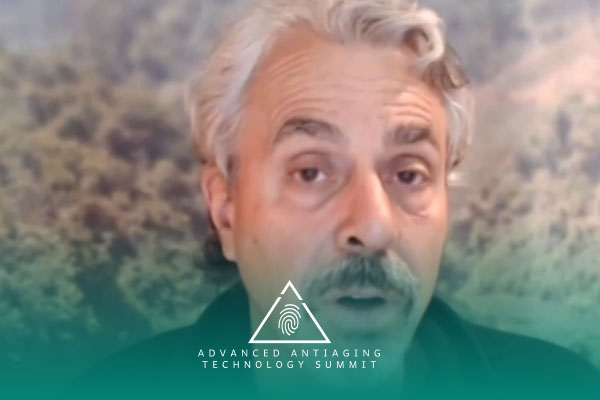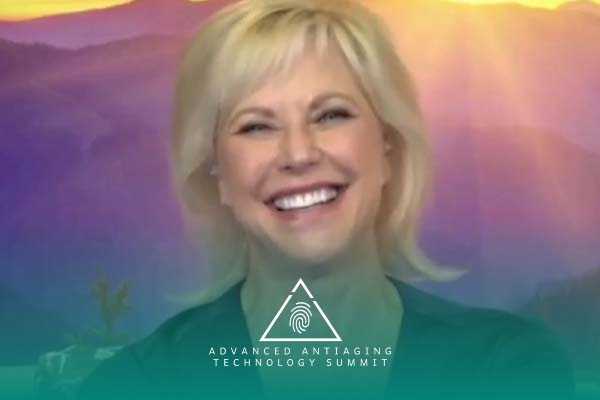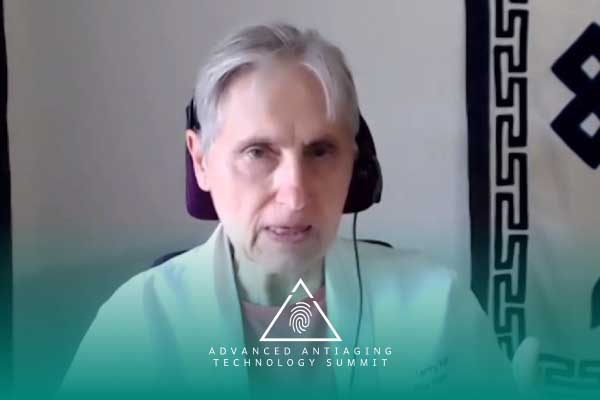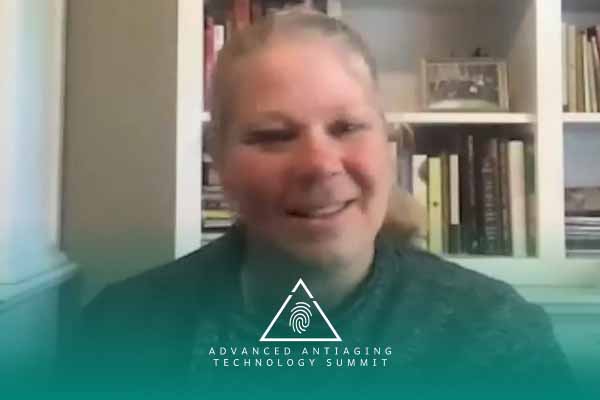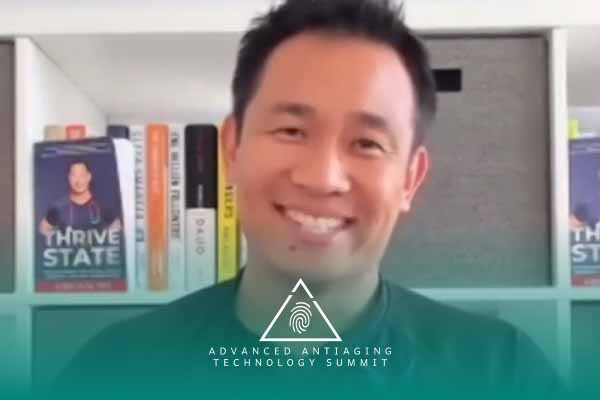Join the discussion below
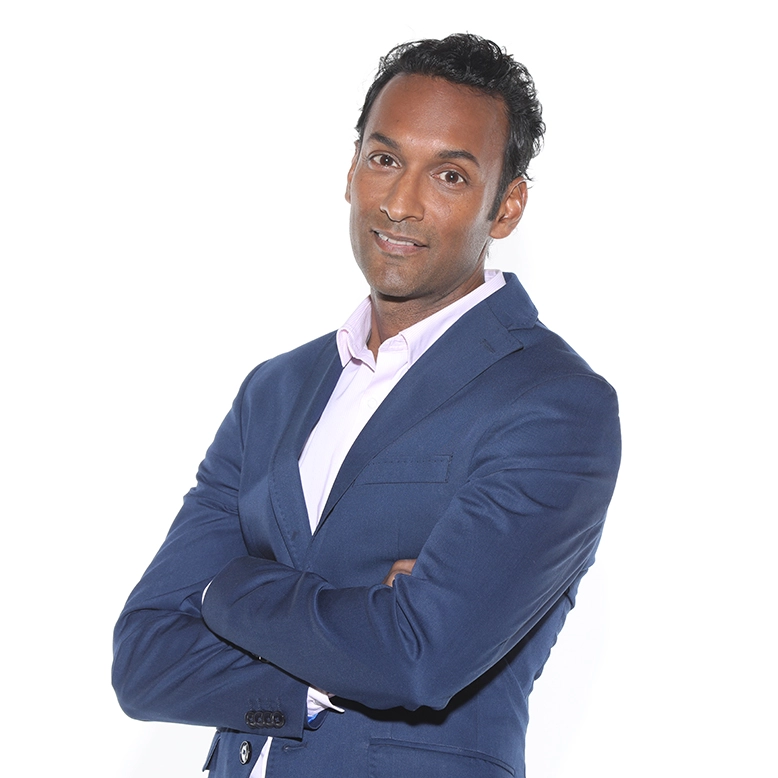
Dr. Goel is a medical physician and founder of Peak Human Labs. His mission is to speak knowledge of the latest cutting edge medical tools and science in order more people to live in a Peak mental, physical and spiritual state. You can learn more about his work at longevity.peakhuman.ca. Read More
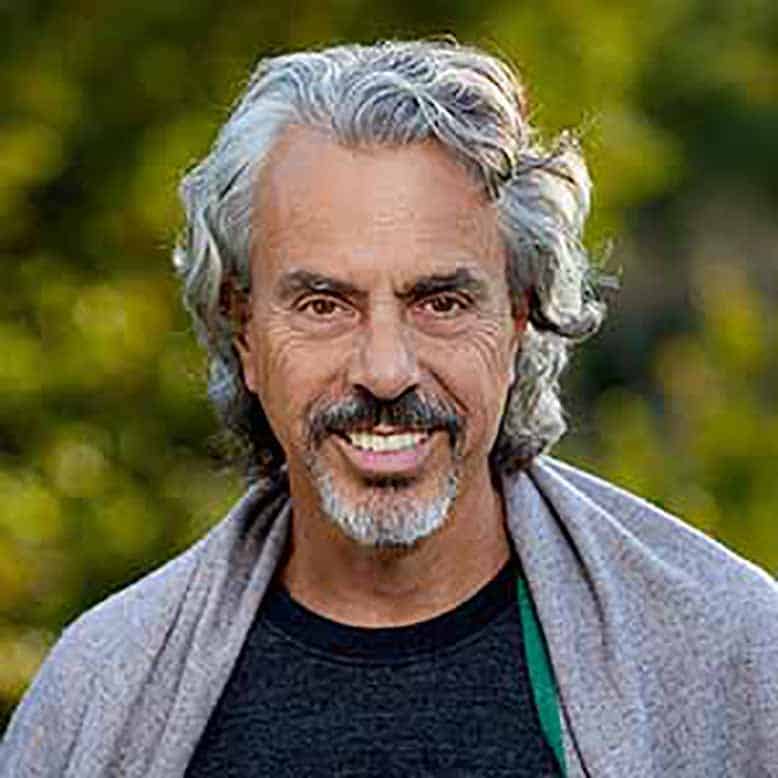
Chris Kilham is a medicine hunter, author, educator and yogi. The founder of Medicine Hunter Inc., Chris has conducted medicinal plant research and sustainable botanical sourcing in over 45 countries.in over 45 countries. Chris works with companies to develop and popularize traditional plant-based food and medicinal products into market successes. These... Read More
The Importance of Coffee and Chocolate: The video highlights the health benefits of coffee and unsweetened cocoa, emphasizing their role as sources of antioxidants that support heart health, regulate blood sugar, improve mood, and reduce the risk of certain diseases.
Key Plant-Based Herbs for Longevity: The discussion mentions specific plant-based herbs like ashwagandha, ginseng, and turmeric, which are known for their potential to enhance brain function, energy, sexual health, and overall well-being. These herbs are considered valuable for promoting longevity and vitality.
Environmental Factors and Plant Characteristics: The video touches upon the significance of environmental factors, soil quality, and plant diversity in determining the characteristics and potency of medicinal plants. It emphasizes the co-evolutionary relationship between humans and plants and the impact of cultivation methods on plant quality.
Related Topics
Aging, Anti-aging, Ashwagandha, Chocolate, Coffee, Exercise, Ginseng, Inflammation, Longevity, Neuroprotective Factors, Organic Foods, Plant Medicines, Qigong, Rhodiola, Tai Chi, Turmeric, Water, YogaSanjeev Goel, MD, FCFP (PC), CAFCI
Hi, I’m Dr. Sanjeev Goel and you’re listening to the Advanced Anti-aging and Technology Summit and today my guest is Christopher Kilham, also known as the medicine hunter. How are you, Chris?
Chris Kilham
I’m good, Sanjeev. Thanks for having me on today. How are you?
Sanjeev Goel, MD, FCFP (PC), CAFCI
Good, I’m doing good. I specifically wanted you as a guest because of your expertise in plant medicines and we’re talking about anti-aging today. So I wanted to get your thoughts about, what you think are the most important plants out there that we should be thinking about and to live basically in harmony with our bodies and our minds?
Chris Kilham
I’m gonna start out with two plants that will have people, some people will be going, okay, finally right on and other people will be objecting and they are coffee and chocolate. Yeah, let’s start there. Okay coffee. I know there’s been a lot of nonsense about coffee for a long time. Some of the health advocates in the ’30s and ’40s especially were down on coffee and called it toxic and blah blah blah. Coffee is one of the healthiest substances you can put in your body. It is the greatest dietary source of beneficial antioxidants in the American diet. The chlorogenic acids in coffee which are a large group of compounds, balance blood sugar and help to maintain healthy blood vessels and regulate heart activity and improve mood and help to reduce the risk of certain types of cancers and on and on and on and on. There are people, oh about 15% or so of the adult population is caffeine intolerant.
You know who you are if you’re one of those. You drink a cup of coffee at noon and you’re awake at midnight. Okay, that’s caffeine intolerant. So decaf is right for you. But in terms of the rest of the population, a couple of cups of coffee a day is nothing but good news. And we see from huge epidemiological studies, and I mean as many as 64,000 people, we see long ongoing epidemiological studies showing that coffee drinkers have a lower rate of Parkinson’s disease, much, much lower rates of colon and rectal cancers, brighter mood overall into older age and many other markers of better health in life. So very high on my list is coffee. Chocolate, I can hear people saying yeah right now I’m not talking about heavily sugared chocolate but I had the opportunity to do some work with the Kuna people of Panama. They’re a native group.
They’ve been very well studied by Harvard and other medical groups for a long time because among the Kuna, there’s a group of them that are so poor that the only thing they have to eat is cocoa, that’s the makings of chocolate, and some bananas. And so they make this heavy, heavy, heavy gravy-like chocolate drink that they drink about five cups of a day and that’s their primary food and they have no incidents of heart attack, high blood pressure, stroke, or 16 types of common cancers. And they’ve been very, very extensively studied. It’s like the Greenland Eskimos who eat no fiber but they eat such a high amount of omega-3 fatty acids, they have very healthy cardiovascular systems. So I would say coffee and chocolate, unsweetened cocoa, not Dutched cocoa ’cause that destroys the antioxidants in chocolate. You want non-Dutched chocolate, but I’d start there. I would say that in the plant kingdom some of the herbs that are associated with longevity include ashwagandha.
Ashwagandha, big, big Indian plant. Yeah in the Indian field of Ayurveda, among the seven and a half thousand plants that are used in that system ashwagandha is number one. It’s the root that gets used. It’s very good for the brain. It’s good for sexual health. It’s good for energy, stamina and endurance. It’s called a rasayan, which means a life extender. And specifically it’s called a medha rasayan, which is a mind enhancing life extender. So that’s a big, big agent for enhancing. You know I’m not convinced, frankly Sanjeev, that looking at life extension is really the ticket. I think it’s looking at health extension. You know I don’t want to live to be 95 but be a wreck.
Whatever age I live to, I want to be healthy and able and functional and ambulatory. And I think that there are botanicals like ashwagandha that help to do that, like Rhodiola, which is another Asian root that is profound for enhancing energy and endurance and stamina and brain function and metabolism and sexual health. You have a number of botanicals out there that are in that sort of elite class of life extending, health extending agents, that if you utilize them on a regular basis will help to keep you sharper, will help to keep you more in balance. You won’t stay healthy without exercise though. And this is the really big bugaboo for a lot of people. You know, they want to take a pill but they don’t want to exercise. There’s no such thing as a long, healthy life without exercise, whether you’re talking about walking, swimming, whatever it is.
You don’t have to go to a gym, but exercise is key. And some types of exercise like yoga, tai chi, qigong are really designed to help you to balance and maintain harmony in the body. And I think those are phenomenal things for keeping you healthier longer. I mean I’ve been practicing yoga daily for 51 years and I have no idea what life would be like without it, but I don’t think it would be that great for me, you know? So I think that we invest in drinking clean, pure water, spending time in nature, eating organic foods, eating few processed foods, certainly taking advantage of things like ashwagandha and rhodiola and coffee and chocolate. I think all of these things will help us.
Sanjeev Goel, MD, FCFP (PC), CAFCI
So just one thing to clarify. You said, what type of chocolate to avoid that doesn’t have the antioxidant, Dutched chocolate?
Chris Kilham
Yeah, there is a process called Dutching which the Dutch developed and it basically takes chocolate and it makes it less bitter. So like cocoa, it’ll say Dutched cocoa. But the problem with it is that destroys the antioxidants in chocolate and that’s the good stuff. So you don’t want Dutched chocolate. You want chocolate that has not been Dutched. And you know, if you’re making-
Sanjeev Goel, MD, FCFP (PC), CAFCI
How do I know that?
Chris Kilham
What’s that? Oh it’ll say.
Sanjeev Goel, MD, FCFP (PC), CAFCI
How does one know that?
Chris Kilham
It’ll say on a package. Like Hershey’s cocoa will say not a good source of dietary antioxidants, which means it’s been Dutched. Droste cocoa which is a popular brand is Dutched and it’ll say so. Others may specifically say that they have not been so that you’ll know that they’re good sources of antioxidants.
Sanjeev Goel, MD, FCFP (PC), CAFCI
I heard that when people fresh roast the coffee is when they have the most antioxidants, like if it sits around then the antioxidants go away. Is that your understanding?
Chris Kilham
You know time, air, moisture, heat and light will all degrade the antioxidant value of pretty much anything. If you keep coffee, you know, in a sealed container and it’s not sitting out on your window sill, it it’ll keep for a while. I mean if you’re gonna drink coffee regularly, it’ll certainly keep during that time. So I don’t think that’s so much of a factor. I mean I like to grind my beans fresh every morning so that I do get a good robust hit of all the good stuff and it hasn’t been unnecessarily oxidizing as a ground coffee. That’s what I prefer to do.
Sanjeev Goel, MD, FCFP (PC), CAFCI
What about like turmeric, you mentioned ginseng?
Chris Kilham
Well turmeric has really emerged. I mean, you know, it’s funny, again in Ayurveda, in the Indian system of health, turmeric has long been regarded as one of the great botanicals to have in your life and it certainly plays a major role in Indian and Southeast Asian cookery. Turmeric root is phenomenally anti-inflammatory. And we know that inflammation is part of all chronic degenerative diseases. So if you can reduce inflammation, you can reduce the risk of different degenerative health disorders and that’s a great, great benefit. But turmeric also enhances brain function interestingly enough and it causes our bodies to produce what are known as neuroprotective factors.
So it causes our bodies to produce compounds that actually physically protect our nerves all over our bodies. So, yeah, turmeric’s a big deal. Ginseng is another thing you mentioned. You know ginseng’s been around so long, and it’s been popular so long that we almost forget about it at times. It’s like the old standby. But it’s that for a reason. The root of ginseng, like rhodiola and like ashwagandha, makes you a stronger, gives you more endurance, it’s a good mental sharpening agent. You really want to like kind of keep your wits about you having a nice strong cup of ginseng tea is a good way to do that. For sure, ginseng is one of those rasayan life extending botanicals, no question.
Sanjeev Goel, MD, FCFP (PC), CAFCI
Do you think these, I’m interested in your philosophy on why do these plants even exist? Like is this because of coevolution with humans or it just happens to be there?
Chris Kilham
I personally think that in the spectacular diversity of nature, we have a lot of things that are highly beneficial for us. You know, whether it’s grains or fruits or different herbs and spices or medicinal plants. Whether these things co-evolved with us to specifically serve our needs, I don’t particularly subscribe to that idea, but I do think that plants call to us. I mean in my work, you know working with plants all over the world, I’ve unquestionably been called to different ones, just had something I couldn’t get out of my mind, you know, like why am I thinking about this plant constantly and then going and experiencing it in the Amazon or in Siberia or in Vanuatu or in Syria or wherever.
We do for sure co-evolve, we have co-evolved with plants. We share biology with them. The antioxidants that help plants to resist premature decay help us to resist premature decay. You know, so for sure, if you look at something like, again, say ashwagandha, which has hundreds of naturally occurring compounds, it’s going to be better for you any day of the week than any drug you can name, a single molecule compound made in a laboratory that we didn’t co-evolve with. So I don’t know that these are necessarily put here for our purposes if you will, but for sure, we share biology with plants.
You know, we breathe their air, we drink their juices, we eat them as foods, we wear them as clothing, we build homes out of them, we decorate ourselves in our homes with them. We use them as medicines. We use them as ornaments of all different kinds. We wear their fragrances. We distill them and get inebriated from them. I mean we do everything with plants. So we have for sure a unique co-evolutionary relationship with plants and that’s why they’re so valuable to us as health agents in general and as medicines in particular.
Sanjeev Goel, MD, FCFP (PC), CAFCI
What are the plants that you’re most, like you’re looking at now? Like I know you’re still going out and researching different plants.
Chris Kilham
Well, one of the plants that really intrigues me is called jiaogulan. And I have investigated this up in the Northern part of Thailand a couple of times. It has compounds in it very similar to the compounds found in ginseng, it just has a lot more of them. So it’s a leaf, not a root. I’ve been very intrigued by jiaogulan. I think that it’s a future significant product in the market. It just needs broader cultivation, but I would say that’s high on the list. A lot of the time, what I do Sanjeev is I go back again and again to plants that I’ve worked with because I I want to maintain relationship with those plants where they derive and also relationships with the people who are behind them.
So once we get a little bit more of a manageable situation with COVID-19, I’ll want to go back to Malaysia to continue to work with a couple of plants there. One’s called tongkat ali, which is a sex-enhancing overall adaptogenic plant that is very popular and famous there. And I’ll probably continue to do some more work with coffee in different parts of the world. And when COVID dies down, for sure I’ll go back to India and continue work with ashwagandha, which I’ve, you know, I’ve gone to India for ashwagandha like 10 different times so far. I mean it’s something that keeps bringing me back. So that’ll probably be part of it as well.
Sanjeev Goel, MD, FCFP (PC), CAFCI
I’m just curious that what is the impact of the local environment and soil and air and things that give the characteristics of a plant? Like how much of that is related to that?
Chris Kilham
Well, it’s very important. You know, for example, in the ’90s, St John’s Wort became very popular as an antidepressant herb. And what we found was that there was St John’s Wort growing in Ethiopia that had about twice the actives as St. John’s Wort growing in Europe. So that made the African source a superior source. We definitely see variations. You know the Wisconsin ginseng, for example, that I mentioned before has a lower value of ginsenosides than the Ontario ginseng because Ontario’s colder and the roots produce more ginsenosides when it’s colder to protect the root tips from dying in the soil, dying of the cold. So where a plant is grown, I mean a good example, I was investigating schisandra berry, which is another adaptogen like rhodiola, like ashwagandha, it helps you to adapt to different forms of mental and physical stress.
I was exploring it in China and it was interesting and fascinating to see, but a lot of the schisandra was growing in areas that didn’t really have clean air and there was industry nearby. And oddly, there’s a Chinese man here in Western Massachusetts where I live who has a 50 acre schisandra berry farm that is organic and pure and clean. And so it turns out that even though most schisandra’s in China this is the preferred source because of the soil and the air and the water. So in answer to your question, it matters completely.
Sanjeev Goel, MD, FCFP (PC), CAFCI
And what about monocultivation versus let’s say these plants are growing with other types of plants? Would that change the way the ultimate characteristics of the plant?
Chris Kilham
Well, certainly. I mean, look, when you, for example, you go up into the mountains of Morocco, almost every plant in the Atlas Mountains is Rosemary. So you harvest thousands and thousands and thousands of tons of rosemary, you don’t even make a dent in the supply. But there isn’t really that much other plant life around it. Little things, not much. But let’s say in forest environments, and I should be clear, the rosemary’s wild in Morocco, even though it’s sort of a monocrop if you will. But if you’re going to, for example, be in a tropical environment, growing kava, for example in Vanuatu, it’s better to have it intercropped with papaya and coconut and peanuts and a little bit of sugar cane and some yams and tarot ’cause then you have a more broadly healthy ecosystem. So in general, I’m always looking for ways that people can not just monocrop, but then on the other hand, I have to say, I mean I’ve worked with maca in the Peruvian Andes for, excuse me, 23 years. And people grow maca in a field. That’s all they grow. I mean other weeds and grasses come up, but basically it’s just maca, they’re not planting it with anything else. And it does fine and the soil stays healthy and fertile. So I think a lot of it has to do with the crop itself in the environment you’re in.
Sanjeev Goel, MD, FCFP (PC), CAFCI
Okay well that’s, I really appreciate your time today. This is quite interesting and I hope our listeners got some just insights of how diverse the plant kingdom is and how much impact it can have on our own health.
Chris Kilham
Oh yes. Thank you, Sanjeev. It’s always a great pleasure. You take good care.
Sanjeev Goel, MD, FCFP (PC), CAFCI
Take care.
Downloads

